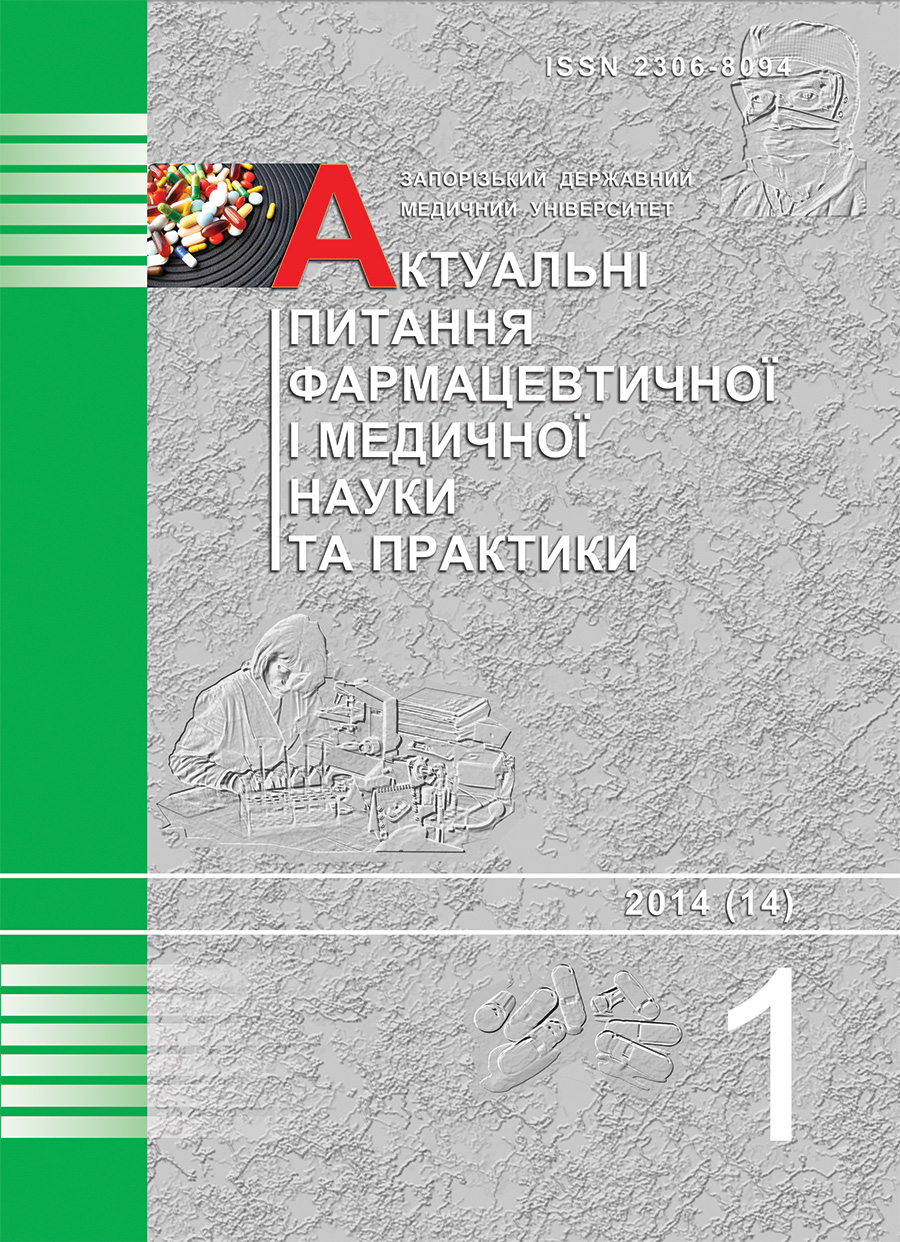THE STUDY OF THE FACTORS WHICH INFLUENCE THE CHOICE OF THE "PHARMACIST" PROFESSION
DOI:
https://doi.org/10.14739/2409-2932.2014.1.24848Keywords:
pharmacy, pharmacist, motives of profession choiceAbstract
The priority of reasons for the choice of the pharmacist profession takes great part in the formation of a competent specialist in the field of pharmacy. The interest of an individual person to productive self professional expression is manifested under the influence of various factors, including the important role played by motivation, which is formed in the process of a vocational guidance and training. Choosing the right profession by each person, then lays an imprint on the attitudes to professional duties and rights.
The aim of the study was to determine the priority motives for choosing the profession "pharmacist" by full-time (FTS) and extramural students (ES) in the current conditions of the pharmaceutical industry development.
Results. One of the methods of marketing research, namely a survey has been used to study the problems on the topic. A questionnaire has been specially developed. The 4 and 5 year of the pharmaceutical department ofZaporozhyeStateMedicalUniversity (FTS and ES) have been selected as the objects of the study.
According to the results of survey a number of factors have been determined which became the motive in choosing a career . The selected decisive factors have been divided into three groups : I - factors for choosing profession, II - factors for personal needs, III - factors for choosing profession and for personal needs .
The following factors have been assigned to the first group: the childhood dream, the desire to help people, the continuation of the dynasty of pharmacists; continuing of medical professionals’ dynasty. The group "in favor of personal needs" includes the following factors: good working conditions, high wages, the prestige of the specialty in the society, the principle “the main thing is getting a higher education”, parents’ urging.
As a result of this distribution it was established: among FTS students 27% of the respondents only mentioned the factors "for choosing a profession". The factors "for personal needs" were chosen by 33% of the questioned, the rest of the students i. e. - 40 % - in their responses noted both groups of factors. Among ES students in 41.4 % of the respondents the factors of the first group dominate and 56.1 % of the respondents chose the factors of the second group; 2.5% of the respondents mentioned both groups of factors. Thus, the group of factors - for personal needs’ satisfaction was determined as most prevailing on the career choice.
In the analysis of the obtained results and for the further investigation it is necessary to consider the social and psychological aspects of the age groups of respondents. The periodization gives the possibility to determine for each age the standards of development (mental and physical, intellectual, emotional, personal) and the social situation.
Conclusions. In the formation of a competent specialist in the field of pharmacy the priority of reasons for the choice of the profession of pharmacist takes the important place. Full-time and part-time students identified the group of "factors for personal needs” satisfaction as the most predominating on the choice of a "pharmacist" career. Such changes in students value’s orientations require a revision in the system of educational and training activities in the higher pharmaceutical school, the search and implementing of new forms and methods of work with students to train and educate not only highly professional specialists, but true patriots of their profession.
References
Галузеві стандарти вищої освіти України [Електронний ресурс]. – Режим доступу: http://www.testcentr.org.ua/images/standards/7.110201%20pharmacy%20(eqc).pdf.
Ткаченко Н. О. Формування соціальної відповідальності у системі вищої фармацевтичної освіти / Н. О. Ткаченко, Є. Г. Книш, Н. М. Червоненко // Фармацевтичний журнал. – 2013. – № 3. – С. 23–28.
Концепція Національної стратегії соціальної відповідальності бізнесу в Україні (проект) [Електронний ресурс]. – Режим доступу: http://www.uspp.org.ua/media/%20КСВ+_1.doc.
Семенюк О. Ціннісна орієнтація як основа формування професійної компетентності майбутніх фармацевтів / О. Семенюк // Освіта регіону. Український науковий журнал. – 2011. – № 3. – С. 235–239.
Пляка Л. В. Психологічні особливості розвитку професійної комунікативної компетентності у майбутніх провізорів : автореф. дис. на здобуття наукового ступеня канд. психол. наук : спец. 19.00.07 – педагогіка та вікова психологія / Л. В. Пляка ; Інститут психології ім. Г. С. Костюка НАПН України. – К., 2010. – 20 с.
Кириленко М. Выбираем профессию или судьбу? / М. Кириленко // Фармацевт-практик. – 2012. – № 4. – С. 60–61.
Мищеряков Б. Большой психологический словарь [Электронный ресурс] / Б. Мищеряков, В. Зинченко. – Режим доступа: http://www.gumer.info/bibliotek_Buks/Psihol/dict/03.php.
Кузікова С.Б. Теорія та практика вікової психокорекції : навчальний посібник / С.Б. Кузікова. – Суми : Університетська книга, 2006. – 384 с.
Downloads
How to Cite
Issue
Section
License
Authors who publish with this journal agree to the following terms:
- Authors retain copyright and grant the journal right of first publication with the work simultaneously licensed under a Creative Commons Attribution License that allows others to share the work with an acknowledgement of the work's authorship and initial publication in this journal.

- Authors are able to enter into separate, additional contractual arrangements for the non-exclusive distribution of the journal's published version of the work (e.g., post it to an institutional repository or publish it in a book), with an acknowledgement of its initial publication in this journal.
- Authors are permitted and encouraged to post their work online (e.g., in institutional repositories or on their website) prior to and during the submission process, as it can lead to productive exchanges, as well as earlier and greater citation of published work (See The Effect of Open Access)

